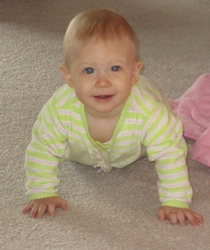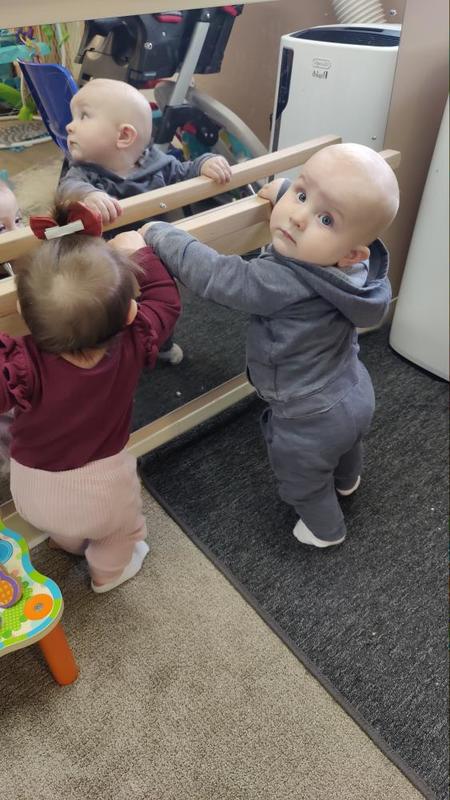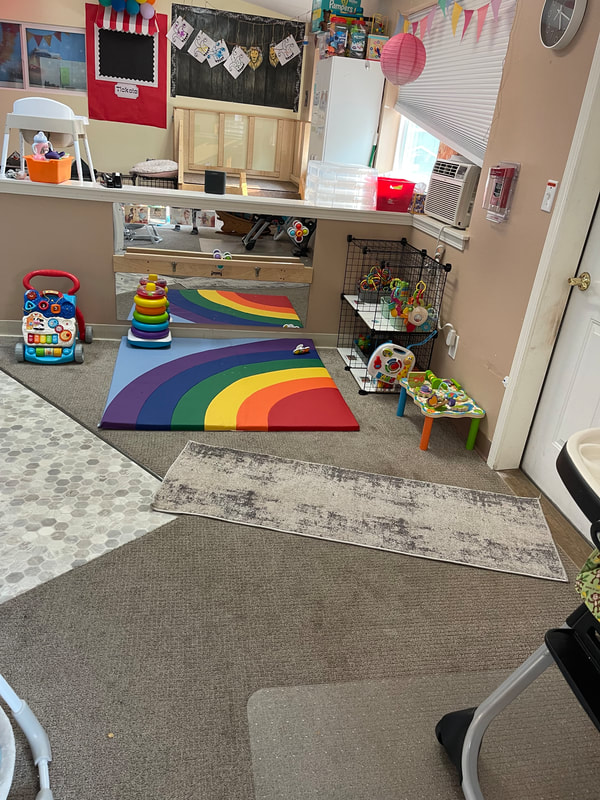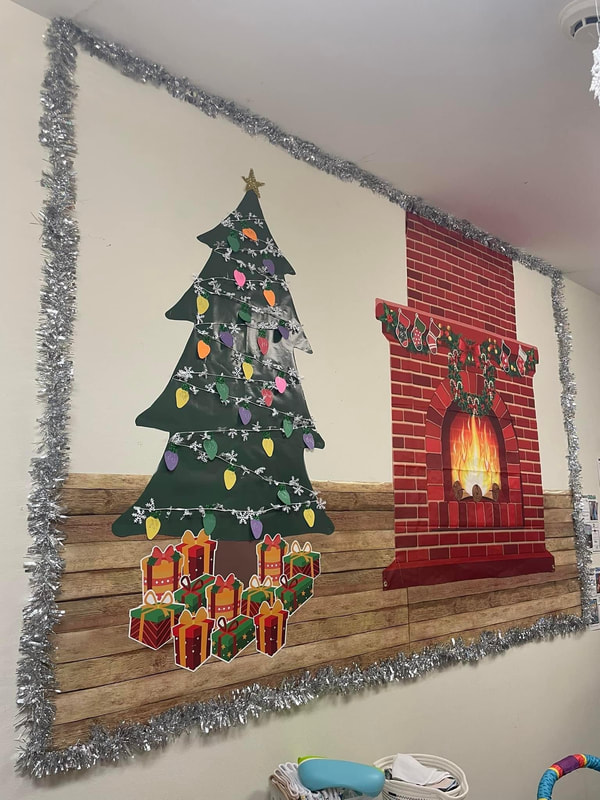We LOVE our babies!
Babies are little sponges, and it is a time where interaction is of the utmost importance. Infants' brains are developing and growing through all of the sensory input in their environments. We are highly interactive with our babies, with a very sensory stimulating environment. The toys, music, language, and personal attention we give our babies enables them to develop the connections socially, emotionally and cognitively they need.
Communication with is of the utmost importance between our parents and teachers. We work closely with our babies' parents to give them the care that is consistent between home and school.
Birth to Six Months
Physical Development - At birth, infants cannot control their body movements. Most of their movements are reflexes. Their nervous system is not fully developed. During the first months, infants can see clearly objects that are about 10 inches away from their faces. By six months, their vision is more fully developed. By four months, most babies have some control of their muscles and nervous system. They can sit with support, hold their head up for short periods of time, and can roll from their side to their stomach. By five months, most babies can roll over.
Social and Emotional Development - They begin to develop trust as their parents meet their needs such as changing their diapers when needed, feeding them when they are hungry, and holding them when they cry. When frightened, infants cry and look surprised and afraid. They cry to express anger, pain and hunger. It is their way of communicating. They are easily excited or upset. They need to be cradled and comforted. It seems as if they cannot tell where their bodies end and someone else's begins. Infants smile in response to a pleasant sound or a full stomach. At about six weeks, they smile in response to someone else. By four months, they smile broadly, laugh when pleased, and learn to recognize faces and voices of parents.
Intellectual Development - Infants babble, coo and gurgle. They study their hands and feet. They turn to locate the source of sounds. Infants can focus on and follow moving objects with their eyes. They explore things with their mouths. They put anything they can hold into their mouths. They cry in different ways to express hunger, anger and pain. They forget about objects that they cannot see.
Six to Twelve Months
Physical Development - Infants still take a nap in the morning and afternoon. They start to eat and sleep at regular times. They eat three meals a day and drink from bottles at various times. They start using a cup and a spoon to feed themselves. Infants can sit alone. They crawl with their stomach touching the floor, and they creep on their hands and knees. By eight months, they can reach for and hold objects. They can pick up objects with their thumb and forefinger and let objects go (drop things). They start to throw things. They pull up to stand, they stand holding onto furniture, and they can walk when led. By the time they are 12 months old, most babies can weigh three times what they weighed at birth and gain about an inch per month in length. The average infant at one year may be between 26–30 inches long.
Social and Emotional Development - Infants respond when you say their name. They begin to fear strangers. They begin to fear being left by their parents. They get angry and frustrated when their needs are not met in a reasonable amount of time. Infants will talk to themselves in front of a mirror. They begin to learn what is and is not allowed. Eye contact begins to replace some of the physical contact that younger infants seek.
Intellectual Development - Infants wave bye-bye and play pat-a-cake. They respond to simple directions. They look for things not in sight. Infants make sounds like "dada" and "mama." They begin to pretend by acting out familiar activities. They make sounds that can be understood by people who know them well. They repeat actions that cause a response such as when given a rattle, they will shake it and laugh. By 12 months, many infants speak their first understandable words.
Teacher: Miss Shawntelle/Miss Angie




